If you are thinking about installing an HVAC system in your attic, there are some things you should know. It is essential to understand the pros and cons of this type of installation so that you can make the best decision for your home. Let's take a look at the advantages and disadvantages below.
The pros of installing an HVAC system in your attic are:
- Space saving
- More affordable
- Works for most homes
- Multiple installation options
- Safe from floods
- Less noise
The cons of installing an HVAC system in your attic are:
- Low efficiency
- Wear and tear on ductwork
- Problems are less noticeable
- More holes in the ceiling
- Regular maintenance is harder
As you can see, there are several things to consider before installing an HVAC system in your attic. To help, we will take a closer look at each pro and con in this article. In addition, we will answer other frequently asked questions about installing an HVAC system in your home, so keep reading!

Should I install an HVAC system in the attic?
An HVAC system plays an important role in your home by regulating the air temperature and humidity. Therefore, it is important to install the system in a place where it can work most effectively. HVAC systems can be installed in different areas in the home, such as the attic, basement, or main level.
When it comes to deciding where to install your HVAC system, the attic is an option for many homeowners. Installing the system in the attic has several advantages, but it also has its downsides that should be noted. Let's take a look at each advantage first.
Space saving
One of the biggest advantages of installing an HVAC system in your attic is that it is a space-saving option. The system does not take up any room on your home's main level or basement and can be installed in a small area.
More affordable
Installing an HVAC system in your attic is also more affordable. The system does not require additional ductwork to be installed, which can be costly, and it can use the preexisting ductwork in your home.
Works for most homes
Since almost every home has an attic, this installation option works for most people. Also, furnaces have a downflow sign; it is an excellent place for one.
Multiple installation options
Homeowners can also choose between an electric and gas furnace if they install the system in their attic. It is important to have proper venting and alarms to detect any type of gas leaks.
Safe from floods
Unlike basement HVAC systems, an attic system is safe from flooding and water damage. This can be beneficial in regions that get a lot of rain.
Less noise
If you are looking for more peace and quiet, then installing your HVAC system in the attic may be a good option. The system will not blow as much noise down into the main level of your home, and you will not hear it running as much.
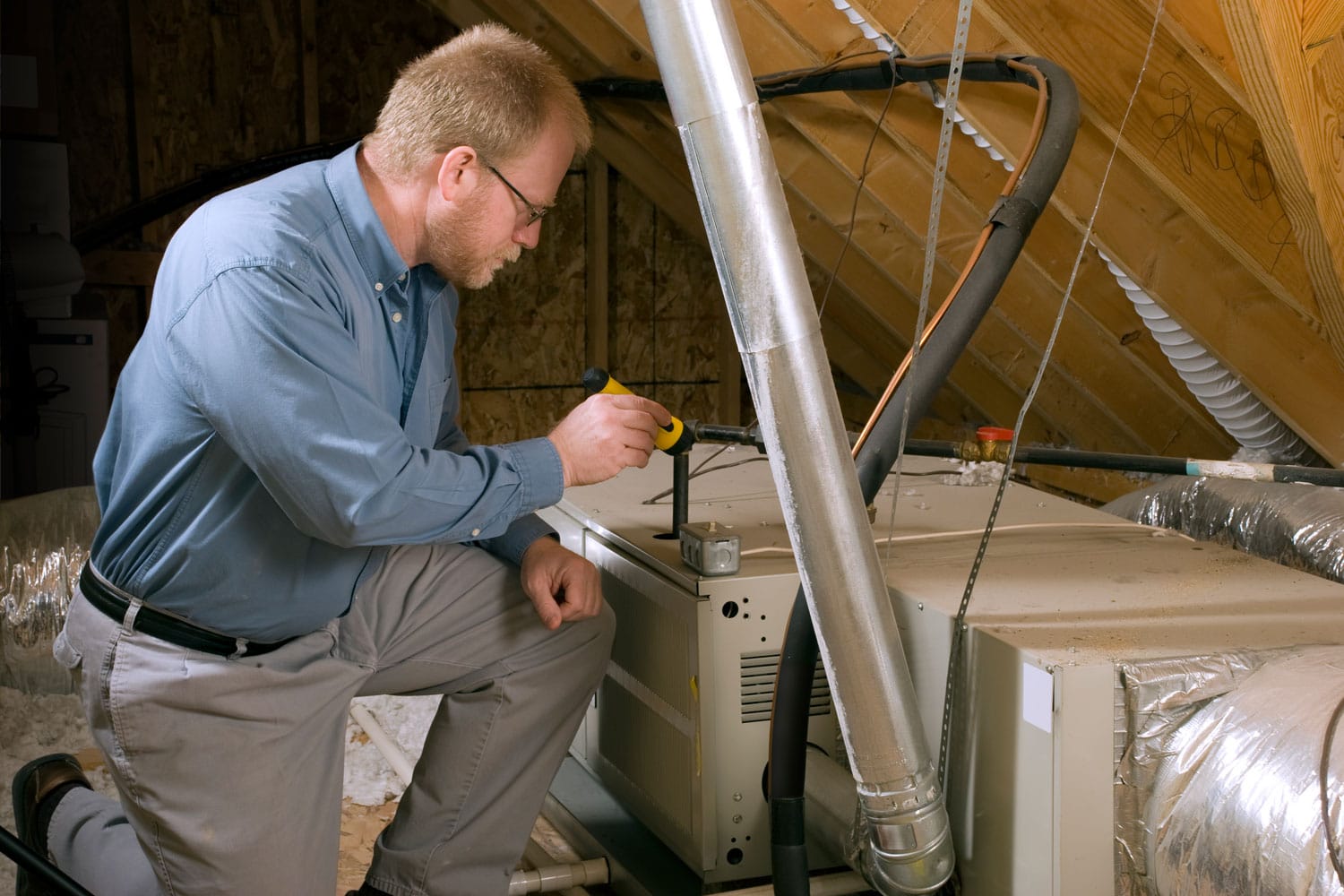
Now that you have the advantages of installing an HVAC system in your attic, let's look at the drawbacks.
Low efficiency
One of the main disadvantages of installing an HVAC system in your attic is that it is not as efficient as other installation options. In addition, the system has to work harder to regulate the temperature and humidity in your home, which can lead to increased energy bills.
Heat rises, which makes it hard to heat the lower levels of your home. In comparison, HVAC systems installed in the basement can more efficiently heat the lower parts of a home.
Wear and tear on ductwork
During the summer, the attic is the hottest part of your house. As a result, the ductwork in the attic can overheat and cause pinhole leaks.
Problems are less noticeable
Since the attic isn't a place that is visited often, it is harder to know if there is a problem with the HVAC system. The problems are less noticeable than if the system was installed in another part of your home.
For example, odd noises are one of the easiest ways to detect a furnace issue. But if the system is in the attic, it can be harder to hear the clunking, banging, or whining coming from the furnace.
If these issues aren't addressed soon, they can lead to decreased air quality, high energy bills, and an overall uncomfortable home.
More holes in the ceiling
Since attic HVAC systems need more duct openings to push the air down into the home, it can lead to more holes in your ceilings. If you don't want numerous vents scattered throughout the ceiling, this is a point to consider.
Regular maintenance is harder
Attic HVAC systems also require more regular maintenance than other installation options. For example, the filters need to be changed more often, and the coils need to be cleaned regularly to ensure proper function.
You also run a higher risk of having mold in your attic if you do not adequately maintain the HVAC system. As a result, you may need to do regular cleanings more frequently than you would if the system was in the basement.
Is it a good idea to put the furnace in the attic?
There are pros and cons to installing an HVAC system in your attic. On the one hand, it is a space-saving option and is more affordable than other installation options.
On the other hand, it is not as efficient as other installation options and can lead to increased energy bills. The system also requires more regular maintenance than other installation options.
Installation of the furnace in the attic should only be considered if you are aware of these pros and cons.
It also depends on the design of your home. If you own a single-story home, this might be a better option. If you live in a home with multiple levels, having the furnace in the basement might make more sense. Speak with a professional to get their opinion on what would work best for your home.
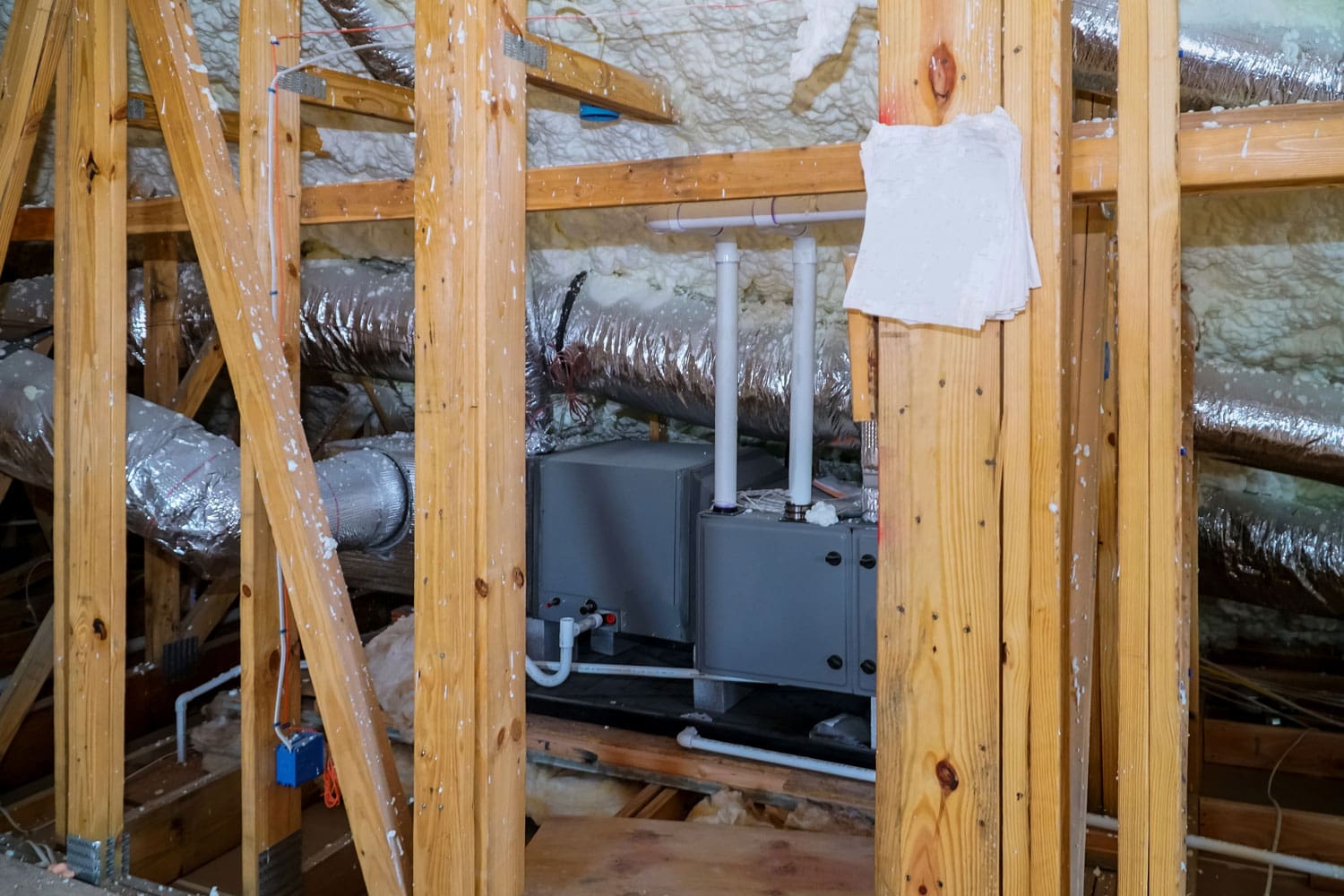
What does an attic air handler do?
An attic air handler helps to circulate the air in your home. It is a unit mounted in the attic, basement, or even a closet that helps move the air from the attic to the other parts of your house.
This can be helpful in homes that have more than one level. The air handler helps push the air down to the lower levels of your home which can help evenly distribute the temperature. It can also help to improve the air quality in your home.
If you are having issues getting air to circulate in your home, you might want to consider installing an attic air handler. Speak with a professional to see if this is the right option for you.
What is the disadvantage of having ducts in the ceiling?
One of the most significant disadvantages of having ducts in the ceiling is insufficient heat distribution. This is because heat rises, so the lower levels of your home will be harder to heat. In comparison, HVAC systems installed in the basement can help the warm air ascend naturally.
As mentioned earlier, another disadvantage of having ducts in the ceiling is that they are more prone to wear and tear. In addition, the ductwork can overheat and cause pinhole leaks.
An air duct pinhole leak is a small hole in the ductwork of your HVAC system. This can cause several problems, including decreased air quality, high energy bills, and an uncomfortable home.
If you are experiencing any of these issues, you may want to consider having your ducts repaired or replaced.
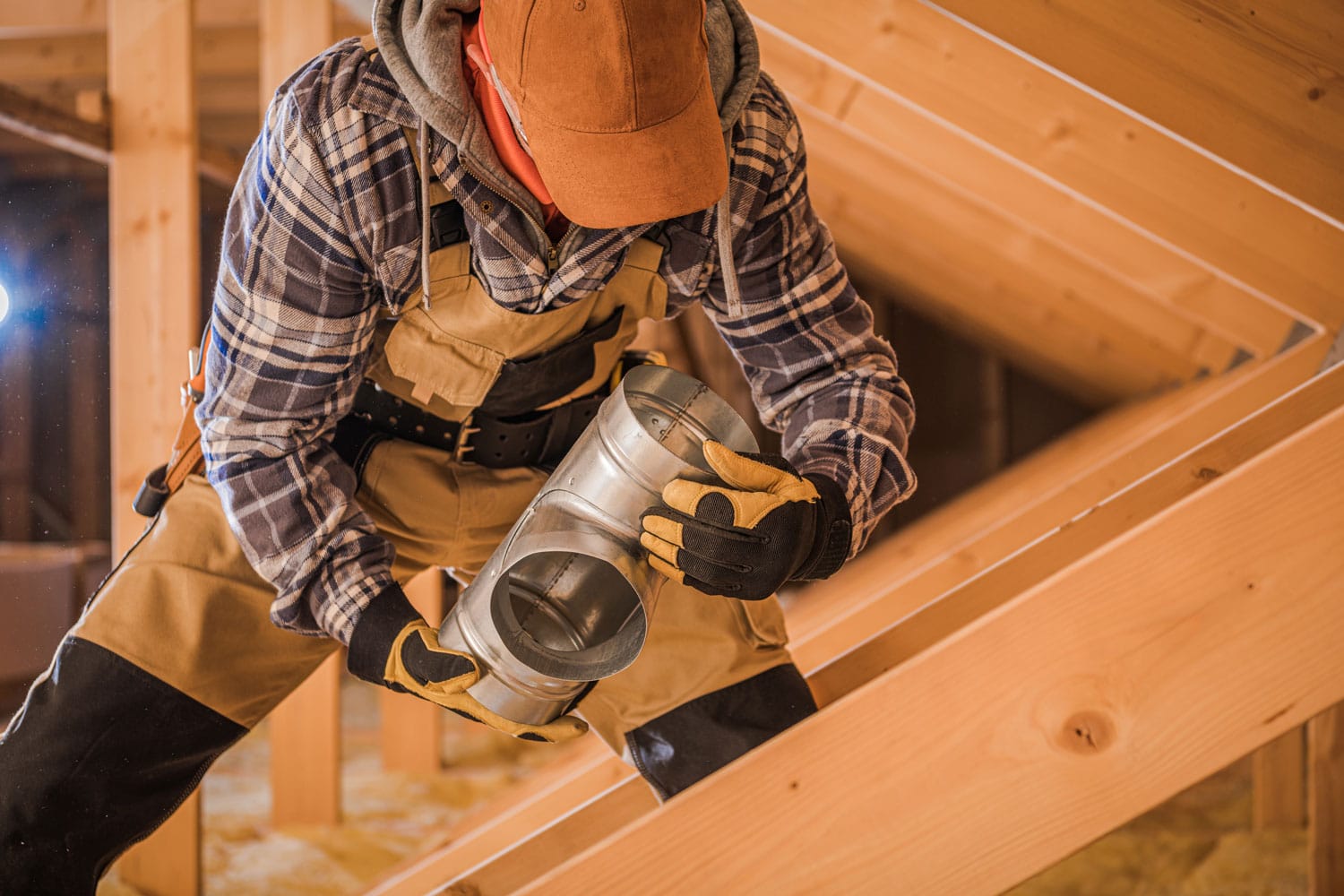
Is it better to have HVAC vents in the floor or ceiling?
This is a tough question because it depends on your heating and cooling needs. For example, if you live in a region such as Alaska or North Dakota where heating is the priority for most of the year, then floor vents are going to serve you better.
Since heat rises, you will have an easier time heating the home from the basement up. On the other hand, ceiling vents are better suited for climates where cooling is the priority, such as Florida or Arizona.
If you're building a new home, it is a good idea to get advice from your contractor. They will give you the best advice based on your specific needs.
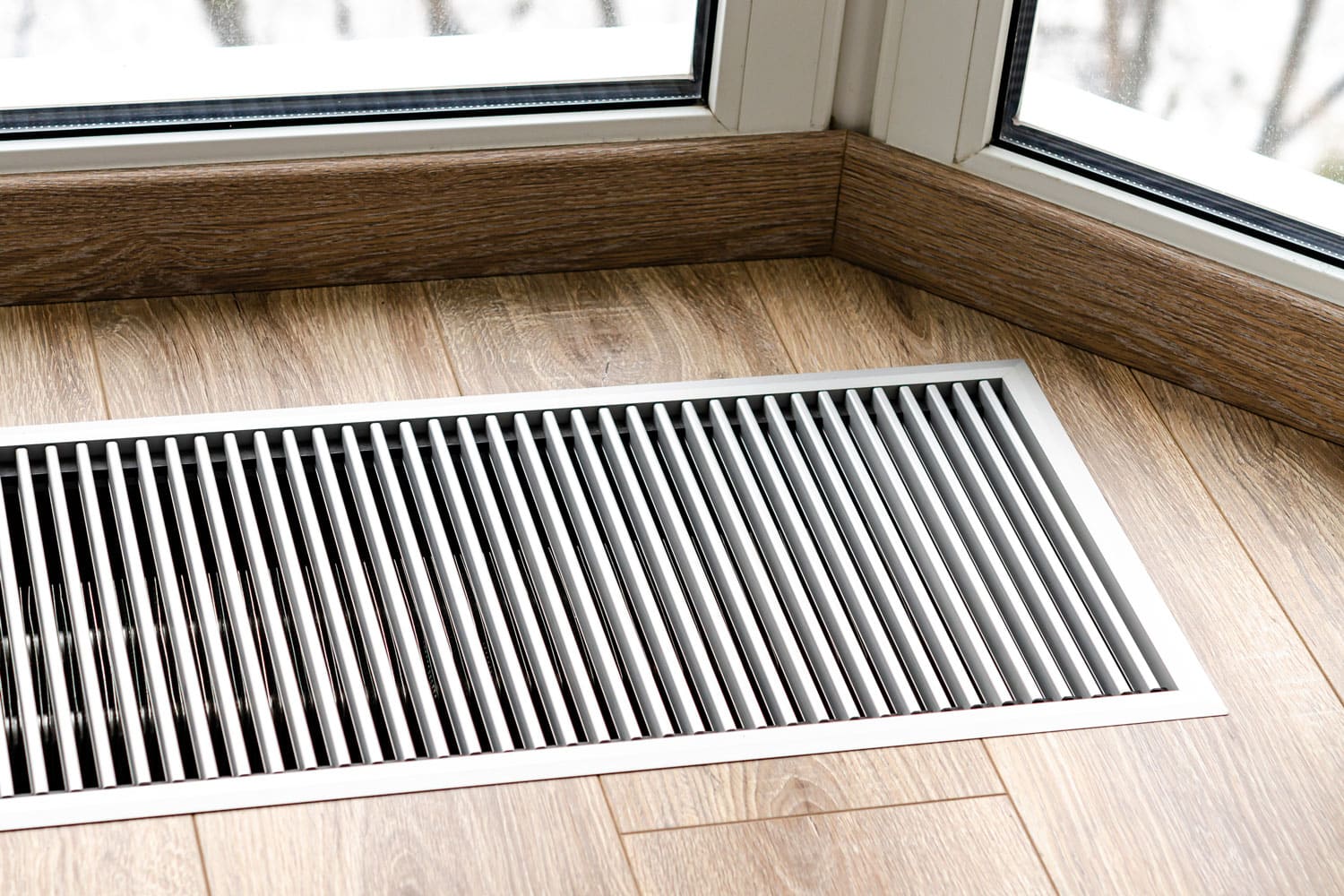
Final Thoughts
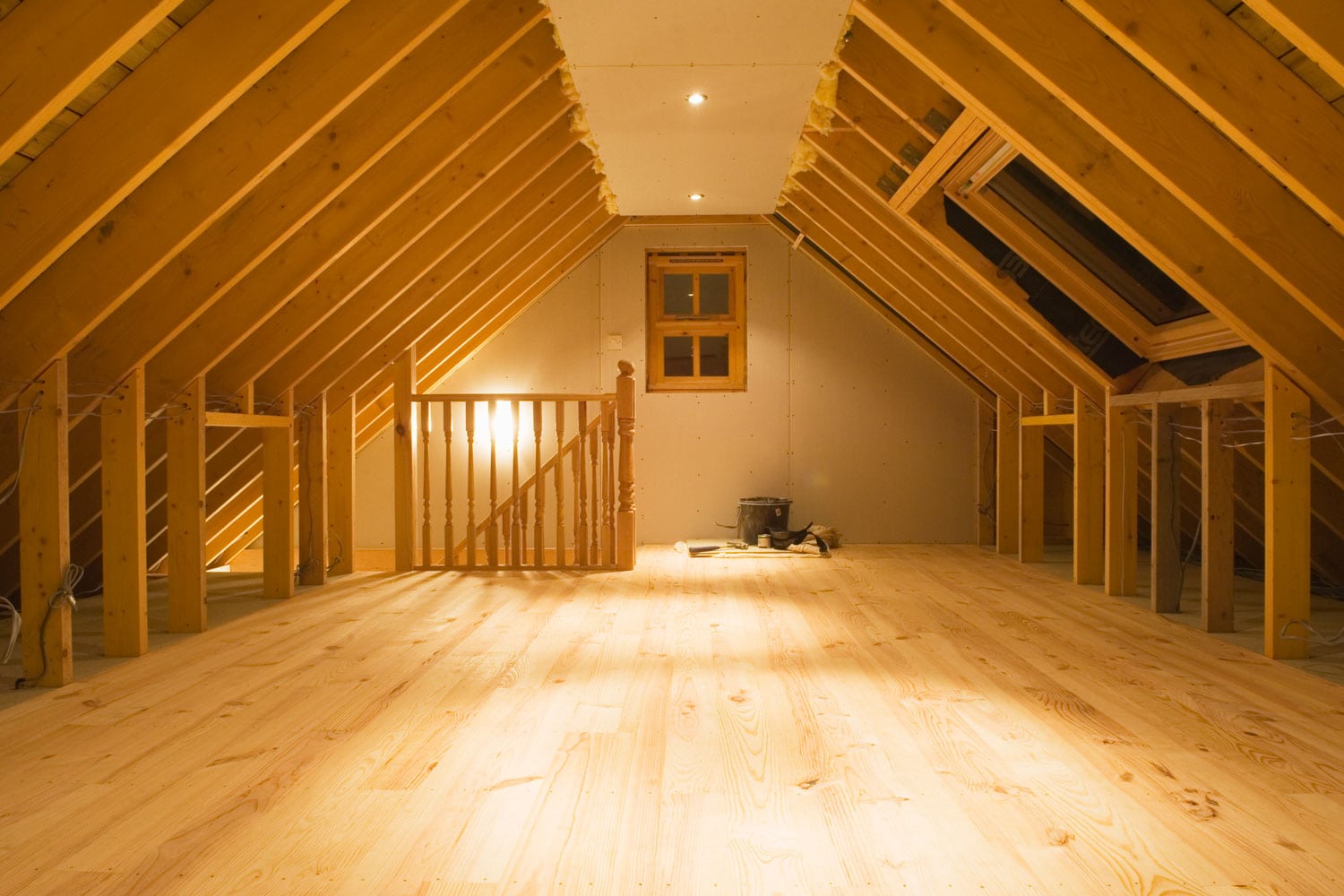
There are many factors to consider when deciding whether or not to install an HVAC system in your attic. Make sure you weigh the pros and cons before making a decision. If you decide to install an HVAC system in your attic, be sure to maintain it regularly to ensure optimal performance.
For more articles like this, check out our website:
How To Keep Furnace Or HVAC Condensate Line From Freezing
Should You Tip Furnace And HVAC Installers?
How Long Does An HVAC Unit Typically Last? [And How To Make It Last Longer]
